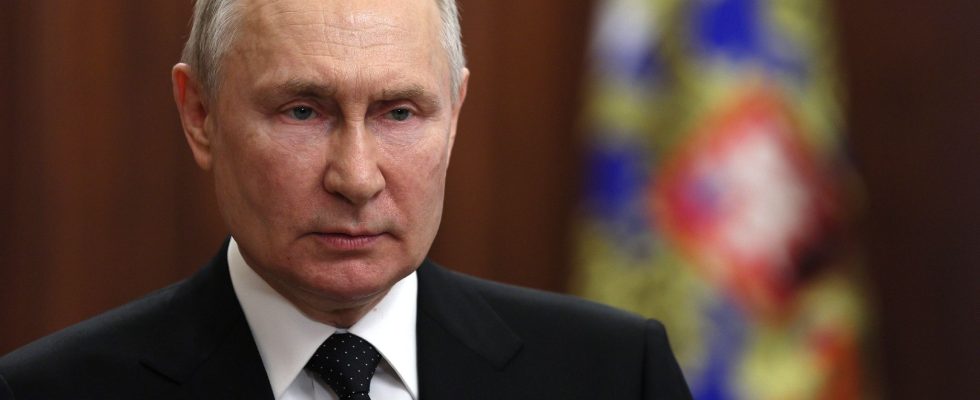Hard to believe today, but there was a time when the tech sector was one of Russia’s most exciting success stories. After the fall of the Berlin Wall, a bubbling digital community had developed in relative independence. And over the years, real heavyweights had been formed, from Yandex to VKontakte, via Kaspersky and Group-IB. In 2023, these tech virtuosos are hungover. Companies that had established themselves abroad are now firmly urged to return home. VK, owner of VKontakte, the famous Russian Facebook registered in the British Virgin Islands, announced on August 11 that it was relocating to the Kaliningrad region and would no longer be listed on the London Stock Exchange.
At the same time, the Kremlin imposes its own chaperones on strategic digital companies, such as Alexei Kudrin, a close associate of Putin who arrived at the head of Yandex last December. According to a Citizen Lab report from the University of Toronto, in the months following the invasion, the Russian government also had content on VKontakte, such as criticism of Vladimir Putin or the war, removed 30 times more often than usual. This tightening of screws has suddenly increased since the beginning of the conflict, but it had actually started a long time ago. “In the early 2000s, there were some first worrying signals, but it was really around the turn of the 2010s that the authoritarian push kicked in, with a series of laws that brought Russia’s digital infrastructure under control” , explains Francesca Musiani, deputy director of the CNRS Internet and Society Center.
Yandex, the Russian Google, tries to save itself
To build their surveillance and censorship machinery, authorities have forced the country’s internet service providers to retain user data for increasingly longer periods of time. “Any criticism of the military is prohibited. It is not even allowed to use the term ‘war’. More and more people are likely to be considered as ‘foreign agents’ “, specifies Francesca Musiani, who co-directed, with Françoise Daucé and Benjamin Loveluck, the writing of Genesis of a digital authoritarianism. Internet repression and resistance in Russia, 2012-2022 (Presses des Mines and free access).
This strategy with deleterious economic effects has broken the wings of Yandex, one of the country’s technological flagships. The Russian Google had managed to capture around 60% of the online search market nationally and was skillfully diversifying internationally, into the cloud, AI, self-driving cars, data labelling… Areas in which its success depended heavily on its ability to work with Western partners and suppliers. A puzzle since the conflict broke out.
To save the furniture and maintain its links with the West, Yandex sold its most controversial activities to VK, as they were very exposed to Kremlin propaganda. As its aggregator of news filled with state media touting Ukraine’s so-called “Russian denazification operation”. Yandex is also working to split into two, in order to isolate the activities that can be isolated from its country of origin – the national business would remain in place. In July 2022, cybersecurity specialist Group-IB took the same route.
“The Exodus of the Century”
But putting tech in a cage won’t solve all of Moscow’s problems. Admittedly, the country’s energy windfall has helped it to cash in on the economic sanctions taken against it by the United States and the European Union. By using a network of crooked intermediaries, Russia manages to partly circumvent the Western embargoes which deprive it of strategic technological components, such as advanced semiconductors. These measures nevertheless put a spoke in the wheels of the Russian digital sector.
The most worrying thing for the country, however, is the massive brain drain. According to a note from the French Institute of International Relations (Ifri), more than 1 million Russians have left the country since the outbreak of the war in Ukraine. Mainly affluent, urban and highly educated young men. “The exodus of the century”, writes the Russian economist Vladislav Inozemtsev, author of the publication. A phenomenon that is hitting the tech sector hard. The Russian government estimates that 100,000 computer scientists would have left the country in 2022, figures that are undoubtedly below reality.
In some groups, such as Yandex, the disagreement with Kremlin policy is particularly marked. Arkadi Voloj, co-founder of the company, who has lived since the 2010s in Israel and recently resigned from the management, was one of the few Russian businessmen to take a stand against the war. “Russia’s invasion of Ukraine is barbaric and I oppose it categorically. I am horrified by the plight of the people of Ukraine, many of whom are friends and relatives, and whose homes are being bombed every days. […] I am against war,” he said in a statement on August 10.
Yandex employees, questioned by the MIT Technology Review, estimated that barely 10% of the company’s employees were still present in the Russian premises in June 2022. Faced with the seriousness of this brain drain, the Russian authorities are doing everything they can to retain and attract professionals from the digital. They offer them “long-term contracts, higher salaries and even… subsidized mortgages (!) over thirty years”, details Vladislav Inozemtsev, in the note from Ifri, specifying that “all this has little of effect”. Difficult to believe in tomorrows that sing when the bloodbath continues.
